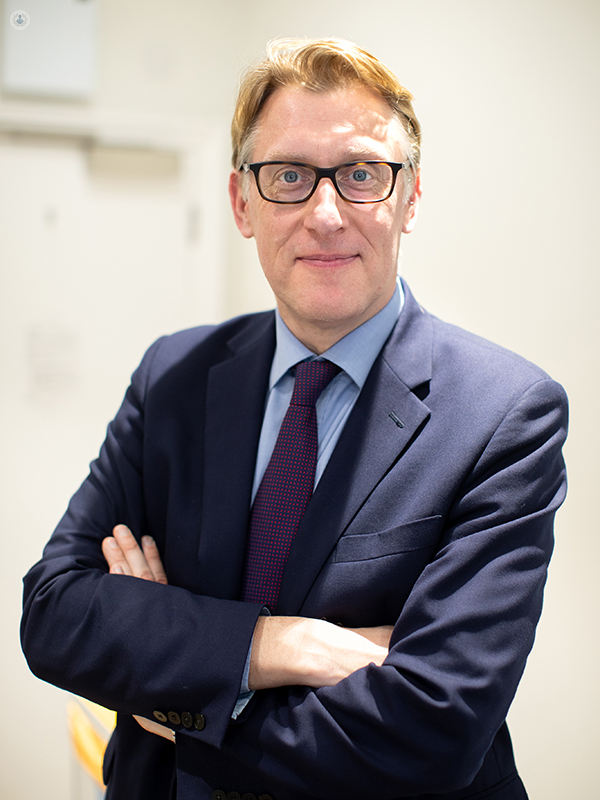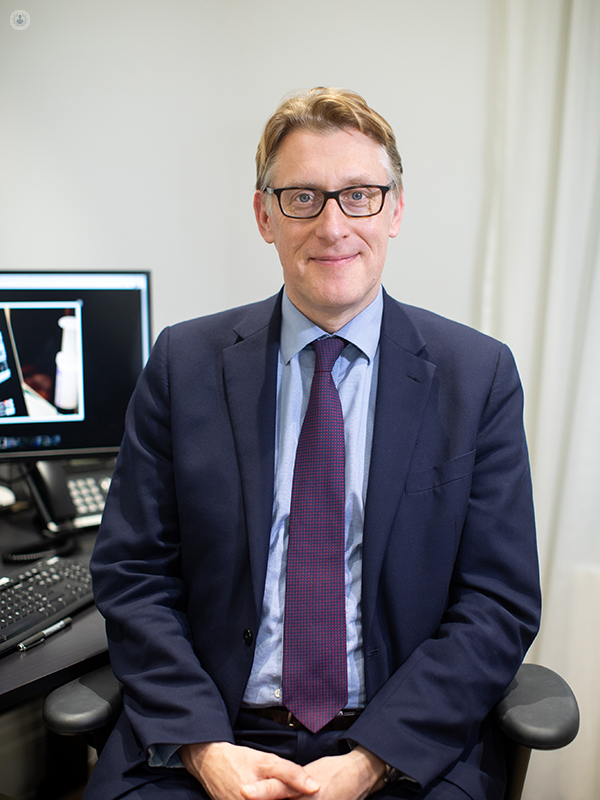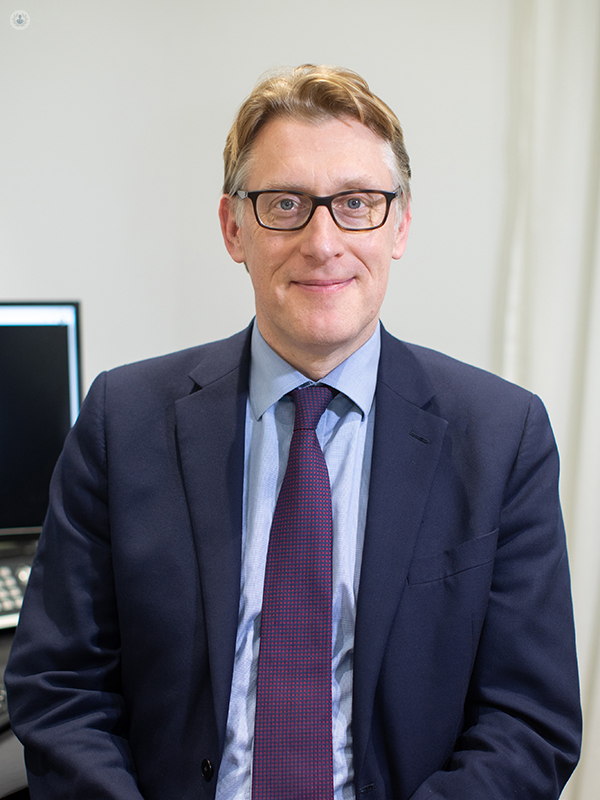

Mr Richard Hindley areas of expertise:
Professional statement
Professor Richard Hindley is a renowned consultant urologist based in London and Hampshire where he is a visiting professor at the University of Winchester. He specialises in diagnosing and treating prostate conditions, such as prostate cancer and benign prostatic enlargement, utilising techniques such as GreenLight laser surgery, Rezum water vapour therapy and iTIND.
He is the leading surgeon in the UK for the Rezum procedure and has performed over 400 cases. He has very much been at the forefront of treatments for benign and malignant conditions of the prostate. His focus is on reducing the side effects of treatments, including the preservation of sexual function. He is among a select few surgeons in the UK that are experienced in high intensity focal ultrasound (HIFU) treatment for localised prostate cancer.
After graduating from the University of Dundee, he trained in Brighton and the South Thames region (including King's Hospital). In 2003, he undertook a fellowship in laparoscopic urology in Brisbane, before being appointed as a consultant surgeon in Basingstoke where he has spent over a decade honing his skills, and helping to improve the local service, turning the Basingstoke centre into one of the leading centres in the UK.
Professor Hindley is a Consultant Urology Surgeon at the North Hampshire Hospital and is also experienced in treating kidney conditions. At the end of 2017, he was appointed as a Visiting Professor at the University of Winchester working in the Department of Health and Wellbeing. He has also been recently appointed as a Specialist Adviser to NICE’s Interventional Procedures Programme.
Richard enjoys teaching and training and has helped to introduce laparoscopy, HIFU, Greenlight laser surgery and Rezum to centres around the UK. He has a large research portfolio and is currently recruiting over 50 patients per year to prostate related clinical trials. He regularly presents at National and International Meetings and was a member of the Medical Research Council’s PROMIS trial committee, which investigated the role of imaging in the assessment of patients with suspected prostate cancer.












